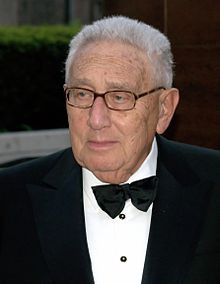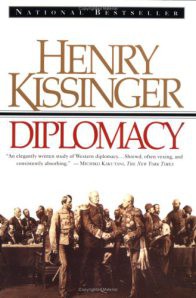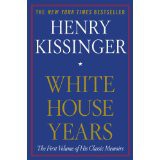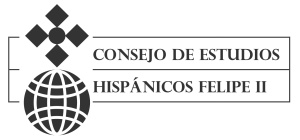 Henry Kissinger is out with an essay in the Wall Street Journal “on the Assembly of a New World Order” (HT Ed Steer). Some parts of it are rather difficult to understand or interpret (is it written in code that only the elite can decipher?). I will attempt to go through it line by line (probably not every single line) and see if, by the time I finish, I can make some sense of it.
Henry Kissinger is out with an essay in the Wall Street Journal “on the Assembly of a New World Order” (HT Ed Steer). Some parts of it are rather difficult to understand or interpret (is it written in code that only the elite can decipher?). I will attempt to go through it line by line (probably not every single line) and see if, by the time I finish, I can make some sense of it.
Libya is in civil war, fundamentalist armies are building a self-declared caliphate across Syria and Iraq and Afghanistan’s young democracy is on the verge of paralysis.
Translated: Pretty much everything touched by the US government in the last ten years has turned into a disaster.
To these troubles are added a resurgence of tensions with Russia and a relationship with China divided between pledges of cooperation and public recrimination.
Translated: Look, Nixon and I handed China to you on a silver platter; the Soviets crumbled just as Mises said they must (whoops, I let that slip – is it too late to take it back? I meant because Reagan spent the Soviets into bankruptcy). So, basically, pretty much everything touched by the US government in the last ten years has turned into a disaster.
The concept of order that has underpinned the modern era is in crisis.
Translated: How could the US government screw-up all of the work we have done to consolidate global governance?
Hopefully, my emphasis on this point has properly conveyed that I consider this opening paragraph to offer an important admission by Henry.
The search for world order has long been defined almost exclusively by the concepts of Western societies. In the decades following World War II, the U.S.—strengthened in its economy and national confidence—began to take up the torch of international leadership and added a new dimension.
Translated: The US government was sitting in the cat-bird’s seat coming out of World War Two, virtually unscathed and in control of every meaningful global institution.
A nation founded explicitly on an idea of free and representative governance, the U.S. identified its own rise with the spread of liberty and democracy and credited these forces with an ability to achieve just and lasting peace.
 It is interesting that he uses the term “governance” and not government. In any case, here Henry is spitting out the party line that the US spread its influence far and wide only for the benefit of bringing “free and representative governance” to the downtrodden (brown and yellow, usually) people of the world.
It is interesting that he uses the term “governance” and not government. In any case, here Henry is spitting out the party line that the US spread its influence far and wide only for the benefit of bringing “free and representative governance” to the downtrodden (brown and yellow, usually) people of the world.
The traditional European approach to order had viewed peoples and states as inherently competitive; to constrain the effects of their clashing ambitions, it relied on a balance of power and a concert of enlightened statesmen.
Europe always played it strategically via balance-of-power politics. This, of course, left one side out of Anglo-elite influence. The American approach (not to mention the American military and economic power) broadened the reach of the elite.
The prevalent American view considered people inherently reasonable and inclined toward peaceful compromise and common sense; the spread of democracy was therefore the overarching goal for international order.
Translated: Democracy fooled the Americans into thinking they were free; we thought that it would fool all of those brown and yellow people, too.
Free markets would uplift individuals, enrich societies and substitute economic interdependence for traditional international rivalries.
Translated: This is why we never allowed free markets to develop.
This effort to establish world order has in many ways come to fruition. A plethora of independent sovereign states govern most of the world’s territory.
Translated: The objective was to establish a plethora of superficially independent sovereign states governing all of the world’s territories. Through these sovereign states, control could be exercised over the people now being fooled into believing that the government represented their interests. And the states were allowed to remain superficially sovereign as long as they didn’t want to become actually sovereign (e.g. Hussein and Gadhafi).
The years from perhaps 1948 to the turn of the century marked a brief moment in human history when one could speak of an incipient global world order composed of an amalgam of American idealism and traditional European concepts of statehood and balance of power.
Most of the period cited by Henry includes the so-called cold war with the Soviet Union. The period also included communist China supposedly apart from the west. Yet, here he declares something approaching victory. Were China and Russia in on the game? Or were they more like useful foils in extending the game?
Henry sees trouble brewing: “The order established and proclaimed by the West stands at a turning point.” In different ways, Barzun and Van Creveld would say the same thing.
First, the nature of the state itself—the basic formal unit of international life—has been subjected to a multitude of pressures.
Henry goes on to explain some of these “pressures,” for example, that the European amalgamation is not going so well, “…Europe has not yet given itself attributes of statehood, tempting a vacuum of authority internally and an imbalance of power along its borders.”
It is interesting how casually he mentions, almost as an aside, that the objective was to create a single, unified, European state.
Further, the Middle East is coming apart:
At the same time, parts of the Middle East have dissolved into sectarian and ethnic components in conflict with each other; religious militias and the powers backing them violate borders and sovereignty at will, producing the phenomenon of failed states not controlling their own territory.
 While likely to have happened eventually anyway (arbitrary borders established in Paris at the end of the Great War were not going to last forever), clearly the US government moved this along significantly.
While likely to have happened eventually anyway (arbitrary borders established in Paris at the end of the Great War were not going to last forever), clearly the US government moved this along significantly.
The international order…faces a paradox: Its prosperity is dependent on the success of globalization, but the process produces a political reaction that often works counter to its aspirations.
This strikes me as a second important admission. Europe is one of the key battlegrounds in this “paradox.” Will the EU (and/or the common currency) be able to hold it together? Will the centralization be able to withstand the corresponding decrease in productivity and therefore standard-of-living? We are witnessing this battle being played out in real time in Europe.
A third failing of the current world order, such as it exists, is the absence of an effective mechanism for the great powers to consult and possibly cooperate on the most consequential issues.
What?!?! I won’t bother mentioning here all of the global / international bodies put in place during the last century – and especially after the war ended in 1945. What is Henry talking about?
This may seem an odd criticism in light of the many multilateral forums that exist—more by far than at any other time in history.
That’s what I just said! This, I believe, is a third important admission.
The penalty for failing will be not so much a major war between states (though in some regions this remains possible) as an evolution into spheres of influence identified with particular domestic structures and forms of governance.
Two key takeaways here: first, the elite cannot afford “a major war between states” any more than the rest of us can – nukes don’t differentiate, and cannot be defended against; second, the idea of “spheres of influence” echoes Barzun’s speculation of what might lie ahead. From Barzun: “The numerous regions of the Occident and America formed a loose confederation obeying rules from Brussels and Washington in concert…”
“Loose confederation” of the west and “spheres of influence” globally seem rather the same thing.
Henry goes on to describe how difficult the task is of bringing billions of people under one umbrella – too many of us billions don’t always go along with the man behind the curtain, it seems. He asks a series of questions that he believes the US government must confront – none very important to me or this post. He then lays the challenge in front of the US government leaders:
For the U.S., this will require thinking on two seemingly contradictory levels. The celebration of universal principles needs to be paired with recognition of the reality of other regions’ histories, cultures and views of their security.
This objective is fundamental to the disasters that the US government has created in the Middle East and North Africa. Not “seemingly contradictory”; just plain old “contradictory.” An impossible task when those being “securitized” (for lack of a better word, yet actually perfectly appropriate in every sense; “The Securitization of Humanity” sounds like a good title for an upcoming post) do not choose to be.
So, I have identified what I believe to be several important admissions; I will pull these together here:
1) We were doing such a fine job of consolidating the new world order, yet in the last ten years or so the US government has pretty much messed up everything it has touched.
2) The new world order was supposed to globalize the economy under one over-arching government (via institutions put in place not later than the end of WWII).
3) The international bodies put in place over the last century – and especially since 1945 – have failed. The people aren’t going along, instead producing “a political reaction that often works counter to its aspirations.”
Now, I will admit that someone viewing Henry’s essay through a different lens could come to different conclusions. I admit I have a particular view on the goings-on around us: global governance and consolidation has seen its best days, at least for this era. Things are coming apart – and the primary tool used in the last 70 years (the US government) has not only failed, it is getting too dangerous for even the survival of the elite. There is no easily co-opted “next” (e.g. China) to ride on this parade toward global government. It is time to back off, at least for now.
I conclude Henry has this same view.
Reprinted with permission from Bionic Mosquito.





 del.icio.us
del.icio.us
 Digg
Digg